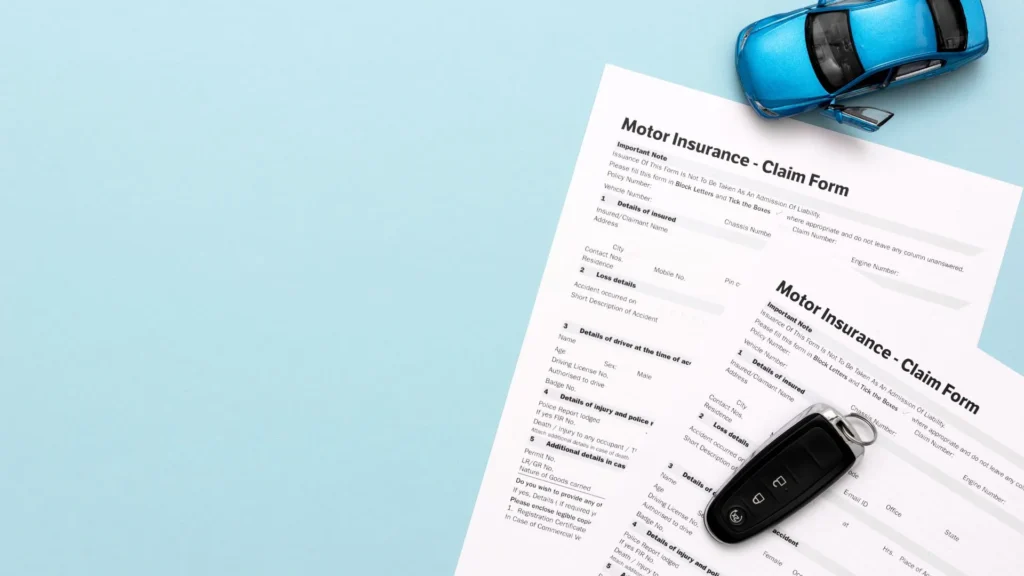Auto accidents are common on American roads, and they can have significant implications on auto insurance policies. In the unfortunate event of an accident, understanding the consequences of your auto insurance coverage and premiums is crucial. Accidents can have a significant impact on auto insurance rates. Therefore, it is important to compare car insurance quotes to get the best deal for your budget and provide the coverage you need in case of an accident. Use the Beem app to find the best insurance quotes that can help you make the right choice.
Introduction
If you are at fault in an accident, you may be seen as a higher risk, leading to a potential increase in premiums during policy renewal. The severity of the accident and the cost of damages can also influence the extent of the rate hike. On the other hand, in a no-fault accident, while your rates may not increase directly due to the accident, they can still rise over time due to other factors, such as inflation or changes in the insurance market.
This blog will explore the impact of accidents on auto insurance in America, the difference between at-fault and no-fault accidents, what steps to take after an accident, the benefits of accident forgiveness, and how an accident affects insurance rates.
At-Fault vs. No-Fault Accidents: What’s the Difference?
For accident insurance claims, the determination of fault plays a pivotal role. In at-fault states, the driver who resulted in the accident becomes liable to pay for the damages and injuries. Conversely, in no-fault states, each party involved in the accident turns to their insurance company for coverage, regardless of who caused the collision. Understanding your state’s regulations can help you navigate the claims process effectively.
At-Fault Accidents
- Liability Determination: In at-fault accidents, the driver who is responsible for causing the collision is deemed to be at fault and, therefore, liable for the damages and injuries that result from the accident.
- Insurance Claims: The driver not at fault can file a claim with the insurance agency of the at-fault driver for compensation for their losses. The at-fault driver’s liability coverage covers the damages up to the policy limits.
- Impact on Insurance Rates: Being at fault in an accident can increase insurance premiums during policy renewal. Insurance companies may view at-fault drivers as higher risk and adjust their rates accordingly.
No-Fault Accidents
- Personal Injury Protection: In no-fault states, drivers are required to carry Personal Injury Protection coverage. Regardless of who caused the accident, each party turns to its own insurance company to cover medical expenses and related costs.
- Limited Lawsuits: No-fault insurance systems aim to reduce litigation by limiting the circumstances under which individuals can sue for damages. Lawsuits are typically only allowed for severe injuries that meet specific criteria.
- Insurance Premiums: In no-fault states, insurance premiums may initially be lower because each driver’s insurance is responsible for their costs. However, premiums can still increase due to factors unrelated to the accident.
What to Do After I Meet With an Accident
After being involved in an accident, taking the proper steps regarding your auto insurance can help facilitate the claims process. As a result, you will receive the necessary coverage. Here’s what to do after a car accident, explicitly concerning auto insurance:
- Ensure Safety: Check for injuries and move vehicles to a safe area.
- Call for Help: Call emergency services (911) to report the accident and request medical assistance.
- Exchange Information: Share contacts, insurance details, and names with the other parties involved.
- Document the Scene: Take photos of vehicle damage and the accident location for insurance purposes.
- Involve the Police: Report the accident to the police and obtain an official accident report.
- Notify Your Insurance: Inform your insurance company about the accident and provide the necessary information.
- Collect Witness Details: Get contact information from witnesses if available.
- Seek Medical Attention: Get a medical evaluation, even if you don’t feel injured.
- Avoid Admitting Fault: Refrain from discussing blame or admitting fault at the scene.
- Preserve Evidence: Keep records of medical bills, repair receipts, and communication with insurers.
Remember, staying calm and following these steps can protect your interests and facilitate a smoother resolution after an accident.

How Accident Forgiveness Can Help?
Accident forgiveness is a valuable policy feature offered by some auto insurance providers. Here are the key points on how accident forgiveness can help
- Premium Protection: Accident forgiveness protects policyholders. This means that even if you cause an accident, your insurance rates will not increase due to that specific incident.
- Policyholder Loyalty: Some insurers offer accident forgiveness as a loyalty incentive to reward long-standing customers who have remained claim-free.
- Non-Transferable: Accident forgiveness is typically tied to the policyholder, meaning it may not transfer to other drivers on the same policy.
- Financial Relief: Without accident forgiveness, an at-fault accident could result in a higher premium for several years, putting financial strain on the policyholder. With this feature, drivers can avoid the financial burden of increased insurance costs.
- One-Time Benefit: Accident forgiveness typically applies to the first at-fault accident during a specific period, such as three to five years. Once utilized, the forgiveness feature may not be available for subsequent accidents.
- Eligibility Requirements: Accident forgiveness may not be automatically included in every policy. It might be an optional add-on or depend on the policyholder’s driving history and previous claims.
Accident Forgiveness Alternatives
| Alternatives | Details |
| Discounts | Keep your rates low even after an accident |
| Vanishing Deductible | Lowers your deductible each year you go without having an accident |
| Low Premium, High Deductible | Raising your deductible can lower your premiums |
How Accident Affects My Insurance Rate?
- At-Fault Accidents: Your insurance rates may rise if you are assessed at fault for the accident. Insurance companies view at-fault drivers as higher risk, leading to higher premiums.
- Severity of the Accident: The extent of the damages and injuries from the accident can influence the impact on your insurance rate. More severe accidents may result in more significant rate hikes.
- Frequency of Accidents: If you have a history of multiple accidents, your insurance provider may perceive you as a higher-risk driver, leading to more significant rate increases.
- Driving Record: A previously clean driving record might offer some leniency, but an at-fault accident can still lead to a rate increase, especially if you have limited experience as a driver.
- Insurance Company Policies: Each insurance company has its own policies on rate adjustments after an accident. Some may offer accident forgiveness for the first incident, mitigating the rate increase.
- Duration of Impact: An at-fault accident can affect your insurance rate for several years. The duration varies based on the insurance company’s guidelines and state regulations.
- State Regulations: State regulations can also influence insurance rate changes after an accident. Some states have stricter guidelines on rate adjustments, while others may allow insurers more flexibility in setting rates.
Conclusion
Auto accidents can have far-reaching consequences on your accident insurance policy in America. Being aware of the distinction between at-fault and no-fault accidents and promptly reporting the incident to your insurer can significantly impact the outcome of your claim. While accidents can lead to premium increases, investing in accident forgiveness coverage can provide a safety net and prevent financial strain after an at-fault collision. Auto insurance with Beem covers damage to your vehicle, damage to other vehicles or property, and injuries to yourself or others. Safe driving habits and being informed about your insurance policy are essential for safeguarding your interests.
FAQs
Will My Insurance Premium Increase After a Not-At-Fault Accident?
A not-at-fault accident usually should not result in a premium increase. However, individual insurance companies may have different policies, so it’s best to check with your provider to understand their specific guidelines.
How Long Does an Accident Affect My Insurance Rates?
The impact of an accident on your insurance rates may vary as per the severity of the accident and your insurer’s policies. Typically, an accident can affect your rates for three to five years.
Can I Switch Insurance Companies After an Accident to Get a Better Rate?
Yes, you can switch insurance companies after an accident. However, remember that your accident history may still affect the rates you receive from the new insurer. It’s necessary to compare quotes from different providers to find the most suitable coverage at the best price.





























